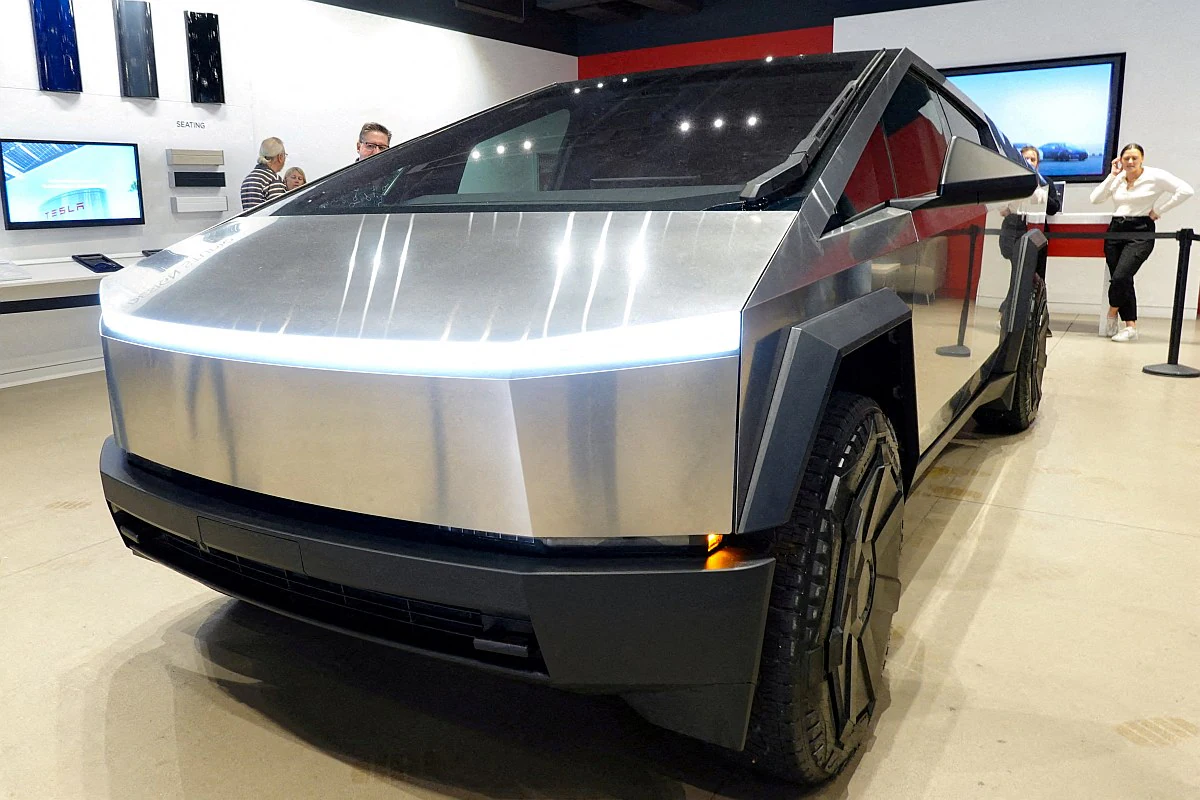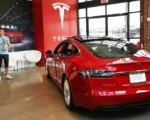Customers who pre-ordered the Tesla Cybertruck in 2019 express disappointment as the pickup’s price exceeds 50% more than expected, accompanied by a lower driving range.
Tesla’s pricier-than-expected Cybertruck pickup, which offers driving ranges that fell well short of what CEO Elon Musk had promised, has deeply disappointed some but fascinated others with its futuristic, SUV-like feel.
The Cybertruck, two years behind schedule, enters a hot pickup truck market to compete with the likes of Ford’s F150 Lightning, Rivian Automotive’s R1T and General Motors’ Hummer EV.
Reddit co-founder Alexis Ohanian, who was among the first dozen customers to pick up the vehicle on Thursday, said the Cybertruck drives and feels like Tesla’s Model X sport utility vehicle.
“Initial feeling about this vehicle – smooth, drives a lot like my Model X. It is big but not unwieldy,” Ohanian said as he live-streamed his first drive of the Cybertruck on social media platform X. He said he’d be the “coolest dad” picking up his kid at school.
Starting at $60,990 (roughly Rs. 51 lakh), the Cybertruck is over 50 percent more expensive than what CEO Elon Musk had touted in 2019. That may narrow the appeal of the vehicle. Tesla’s stock is down over 2 percent since before the launch.
Among those disappointed is Texas-based financial services executive Christian Cook, who had booked a Cybertruck in 2019 after Musk promised a cheaper pickup that travels farther on a single charge.
“The truck pricing and range is a huge let down,” Cook, who drives a Model 3 and told Reuters he had made certain financial decisions based on his plans to buy a Cybertruck. “My respect for Musk has taken a huge hit. My loyalty to Tesla has taken a huge hit.”
CFRA analyst Garrett Nelson said the steep price tag will lead to customers cancelling reservations and expects Tesla to adjust the pricing based on demand going ahead.
The Cybertruck, made of shiny, bullet-proof stainless steel and inspired from a car-turned-submarine from a James Bond movie, is likely to uplift Tesla’s brand that has been dented from steep price cuts to boost demand, according to analysts and branding experts.
“The Cybertruck gets a lot of attention. It brings Tesla back top of mind,” said Spencer Imel, a partner at consumer insights firm Langston.
“But we don’t see it helping Tesla gain ground in terms of becoming a mass market brand and competing with brands like Ford that are serving the everyday car buyer,” he said.
Indeed, the electric pickup’s price and longer wait time for significant financial payoff left analysts concerned.
Musk’s personal ability to build the Tesla brand has also been questioned this week after a live interview in which he cursed out advertisers who left his X social media platform, formerly known as Twitter, over antisemitic material.
That was creating nervousness among investors and some consumers and could be drag on Tesla’s appeal, said Allen Adamson, co-founder of brand and marketing consultancy Metaforce.
“Many of Tesla’s early adopters who bought into the dream of a sustainable future are being kind of rudely woken up,” by some of the “strange things” he has done, turning him from a “rebel” into a “misguided person” for some people, said JP Kuehlwein, an adjunct professor of marketing at Columbia University Business School.
Analysts predict that the Cybertruck may not significantly contribute to Tesla’s financials in the coming year. Bernstein’s forecast suggests around 250 deliveries for the current year and a target of 75,000 for the next, considering both figures “may be ambitious.”
Elon Musk has indicated a production rate of approximately 250,000 Cybertrucks per year by 2025. However, Tesla has consistently cautioned about facing substantial challenges in scaling production and achieving positive free cash flow, potentially not until mid-2025. This situation could impact profitability adversely, especially as Tesla contends with a softening electric-vehicle demand and increased competition.
Bernstein analysts highlight a “product problem” for Tesla, referring to an aging product lineup that doesn’t adequately address various market segments. The absence of new mass-market offerings until potentially late 2025 adds to the challenges Tesla faces in maintaining its market position.
















